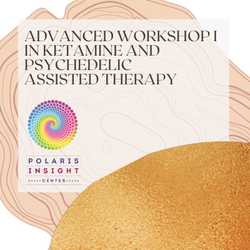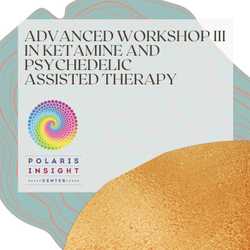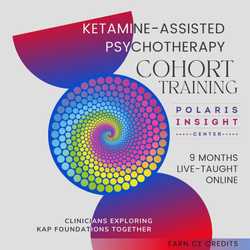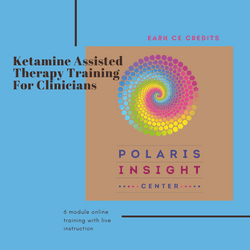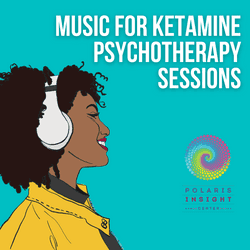Advanced Workshop II in Ketamine- and Psychedelic-Assisted Therapies
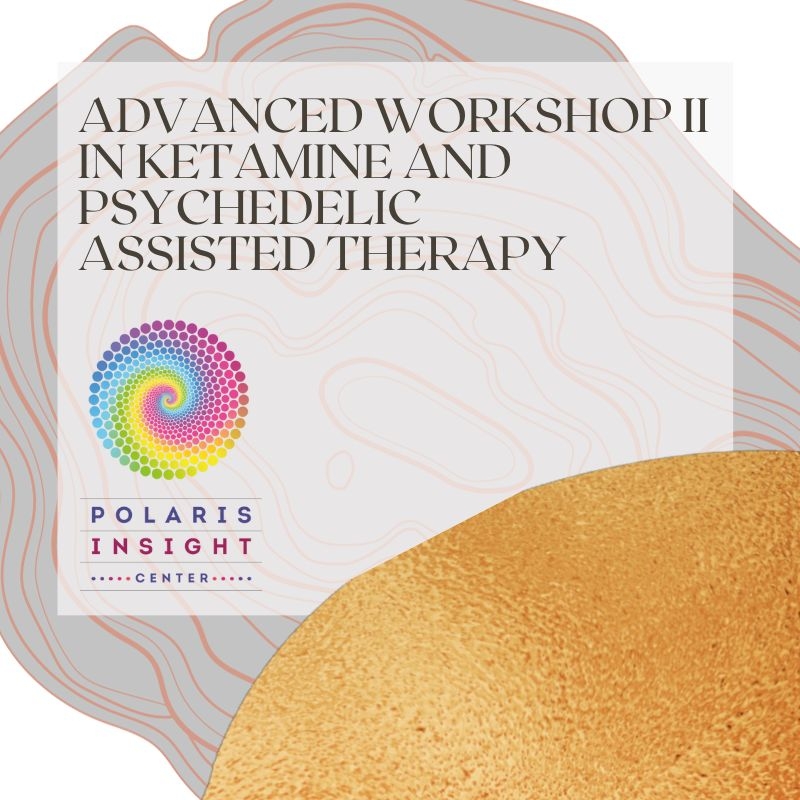
Advanced Workshop II in Ketamine- and Psychedelic-Assisted Therapies
$0.00
Training Description
Join Polaris Insight Center for an advanced workshop where we continue to explore major themes in ketamine- and psychedelic-assisted therapy from prior modules, in order to support clinicians in improving both the quality of their clinical work as well as their own self-care.
We focus on additional special topics in the application of principles and practices of psychedelic-assisted psychotherapies as they relate to the topics of neurotheology (the intersection of spiritual practices and neurophysiology); ketamine and mystical experiences; the relationship between meditation, psychedelics, self-care and improved preparation phase interventions; and the dynamics of the therapy relationship with a particular emphasis on both the intersection of working with symbols and images and subtle intuition within a relational psychoanalytic theoretical perspective and approaches.
Teachings are appropriate for healthcare professionals as well as the general public. Healthcare professionals will be able to incorporate the tools and practices offered in this program in ways beneficial to clients or patients.
Polaris offers modules 1 to 5 ketamine therapy training series. Module 7 can be taken without completing the prior modules.
All modules are taught live online through Zoom. Earn 8 hours of continuing education (CE).
Training Curriculum
Module 7 - Advanced Workshop II on Ketamine- and Psychedelic-Assisted Psychotherapies Live/Online
In this module, we continue the exploration of major themes in ketamine- and psychedelic- assisted therapy from prior modules, to support clinicians in improving both the quality of their clinical work, theoretical understanding, as well as their own self-care.
We focus on additional special topics in the application of principles and practices of psychedelic-assisted psychotherapies as they relate to the topics of: understanding neurotheology (the intersection of spiritual practices and neurophysiology); understanding ketamine and mystical experiences; the relationship between meditation, psychedelics, self- care and improved preparation phase interventions; a review of early research on subjective experiences of ketamine; a survey and review of the topic of religious and spiritual trauma and its relationship to ketamine and other psychedelic-assisted psychotherapies; and, an innovative approach to the issue of integration from an eco-psychedelic point of view.
Teachings are appropriate for healthcare professionals as well as the general public. Healthcare professionals will be able to incorporate the tools and practices offered in this program in ways beneficial to clients or patients.
Learning Objectives for Module 7
After completing this module, participants will be able to:
- Describe the range of experiences a patient could have with IM ketamine.
- Demonstrate 2 ways of using nature-based practices to support integration.
- List three types of spiritual trauma that are likely to appear in KAP and other psychedelic-assisted therapy sessions.
- Explain the difference between religious and spiritual trauma.
- List and describe two meditative practices that can be used for helping with therapist and patient attunement and therapist self-care in psychedelic assisted psychotherapy.
- Describe two important areas of research in the emerging field of neurotheology.
Meet your Training Instructors:





Extra Info
All modules are taught live online through Zoom.
CE Credits:
Earn 16 hours of continuing education (CE) - select CE option.
Date:
April 17, 2026
Time:
9 am - 5 pm Pacific Time
Target Audience:
This course is designed for mental health professionals – MDs, DOs, NDs, NPs, RNs, PsyDs, PhDs, LMFTs, LCSWs, LPCs, LEPs. Open to the public.
Accommodations:
To request accommodations for special needs, please email the program administrator at training@polarisinsight.com.
Cancellation Policy:
Participants need to cancel up to 2 weeks in advance to receive a 100% refund (minus a $25 admin fee and payment processing fee). If cancelled after the 2-weeks-in-advance period they can use the credit for a future training or receive 50% refund (minus a $25 admin fee and payment processing fee).
Certificate Information
Interested in the different certificate options for our courses? Read on to learn more:
Once you complete the course you will receive a Polaris Insight Center Certificate of Completion. Choose this option if you are not a licensed health provider and do not need continuing education credit for your professional degree.
Once you complete the course you will receive a Polaris Insight Center CE Certificate. Choose this option if you are a licensed health provider who would like continuing education credit for your professional degree.
- Be sure to select the CE credit option when purchasing the course.
- Upon completion of the course, you will receive a Certificate of Attendance for your credits.
- CE credits for psychologists are provided by Polaris Insight Center, an APA-approved CE sponsor.
- Polaris Insight Center is approved by the American Psychological Association to sponsor continuing education for psychologists. Polaris Insight Center maintains responsibility for this program and its content.
- The California Board of Behavioral Sciences accepts CE credits for LCSW, LPCC, LEP, and LMFT license renewal for programs offered by approved sponsors of CE by the American Psychological Association.
- LCSW, LPCC, LEP, and LMFTs, and other mental health professionals from states other than California need to check with their state licensing board as to whether or not they accept programs offered by approved sponsors of CE by the American Psychological Association.
- For questions about receiving your Certificate of Attendance, to request special accommodations, or report a grievance contact Psychedelic Support info@psychedelic.support.
